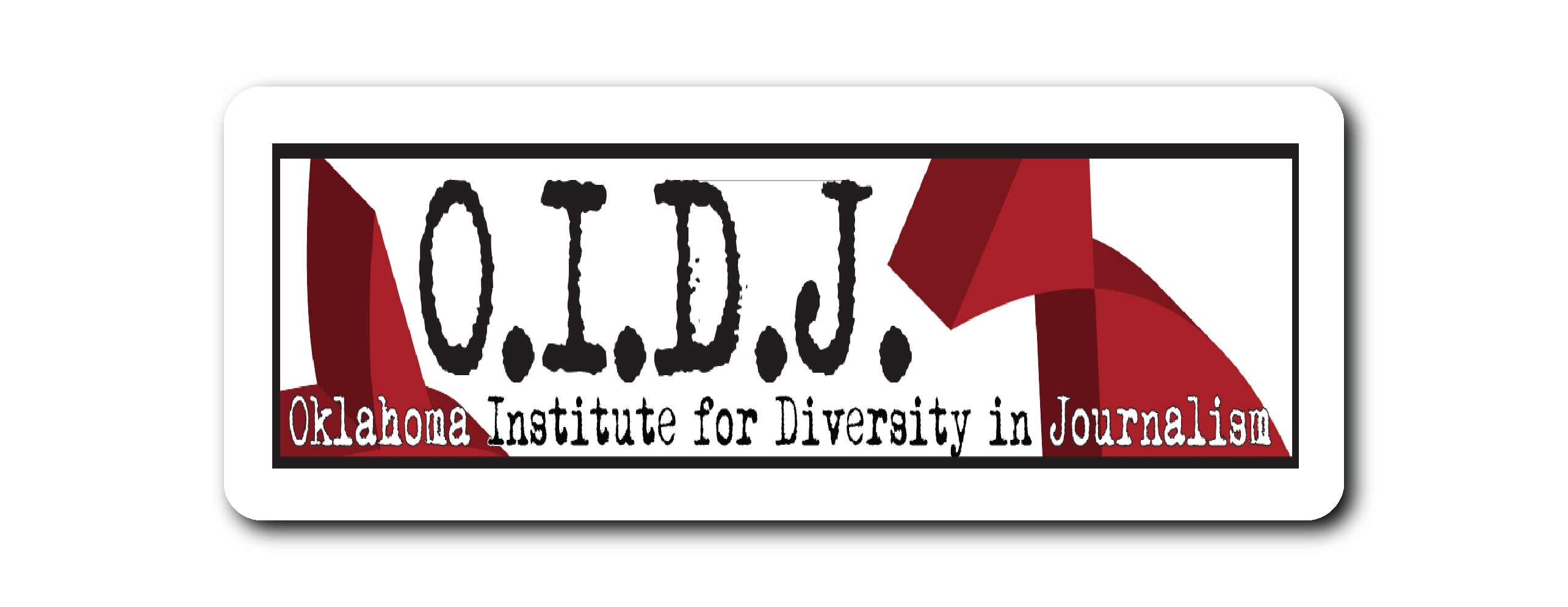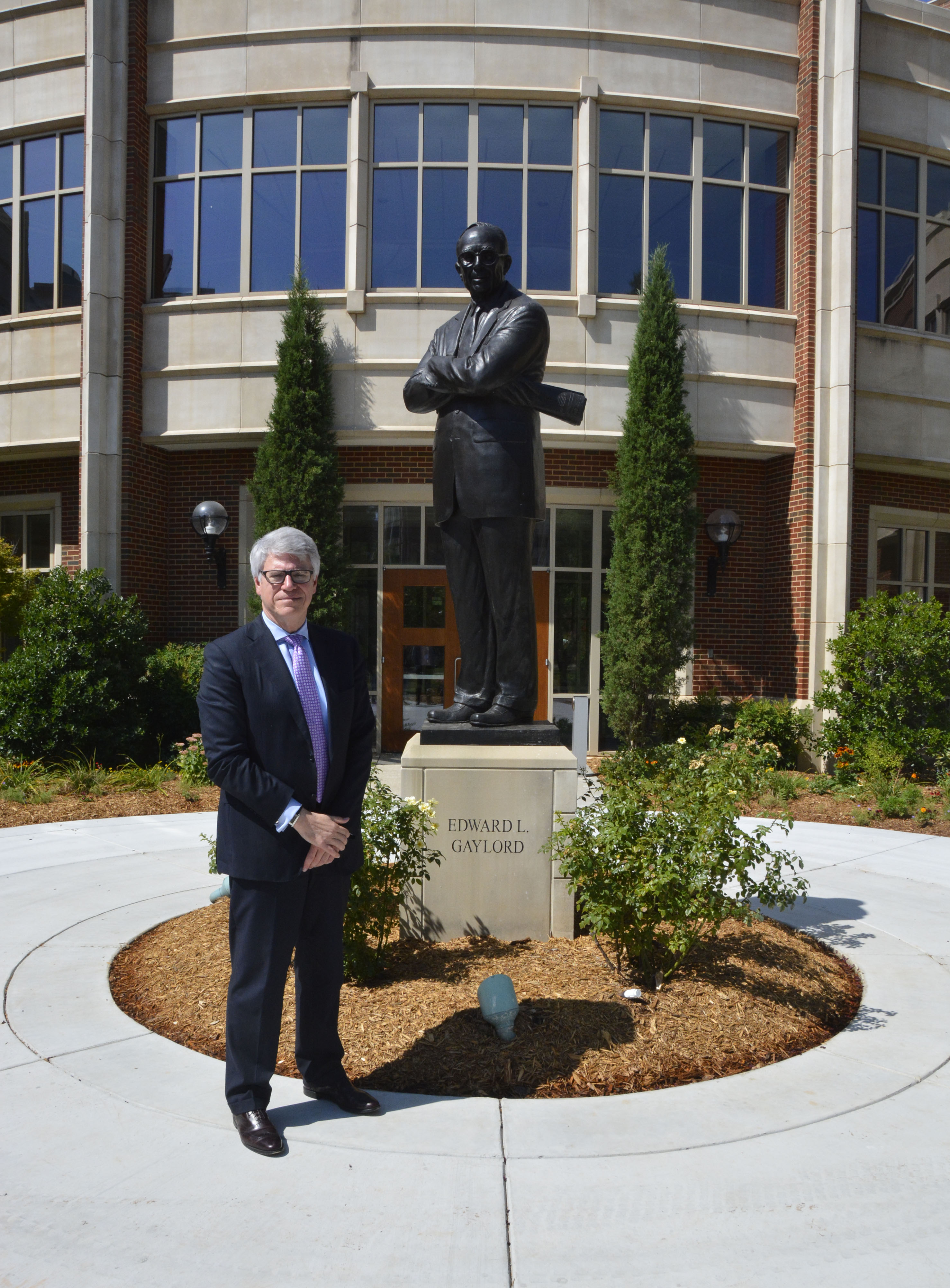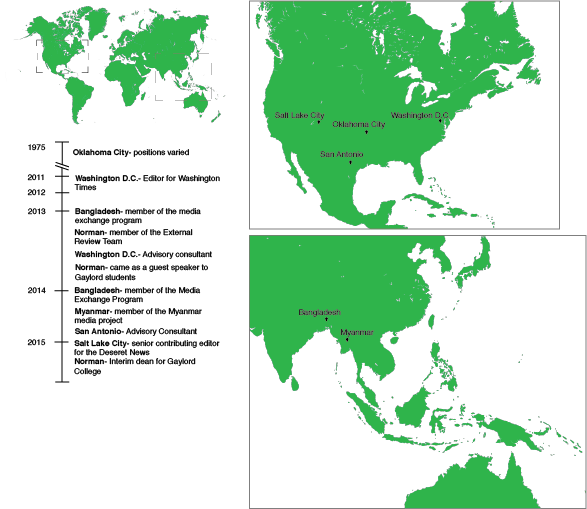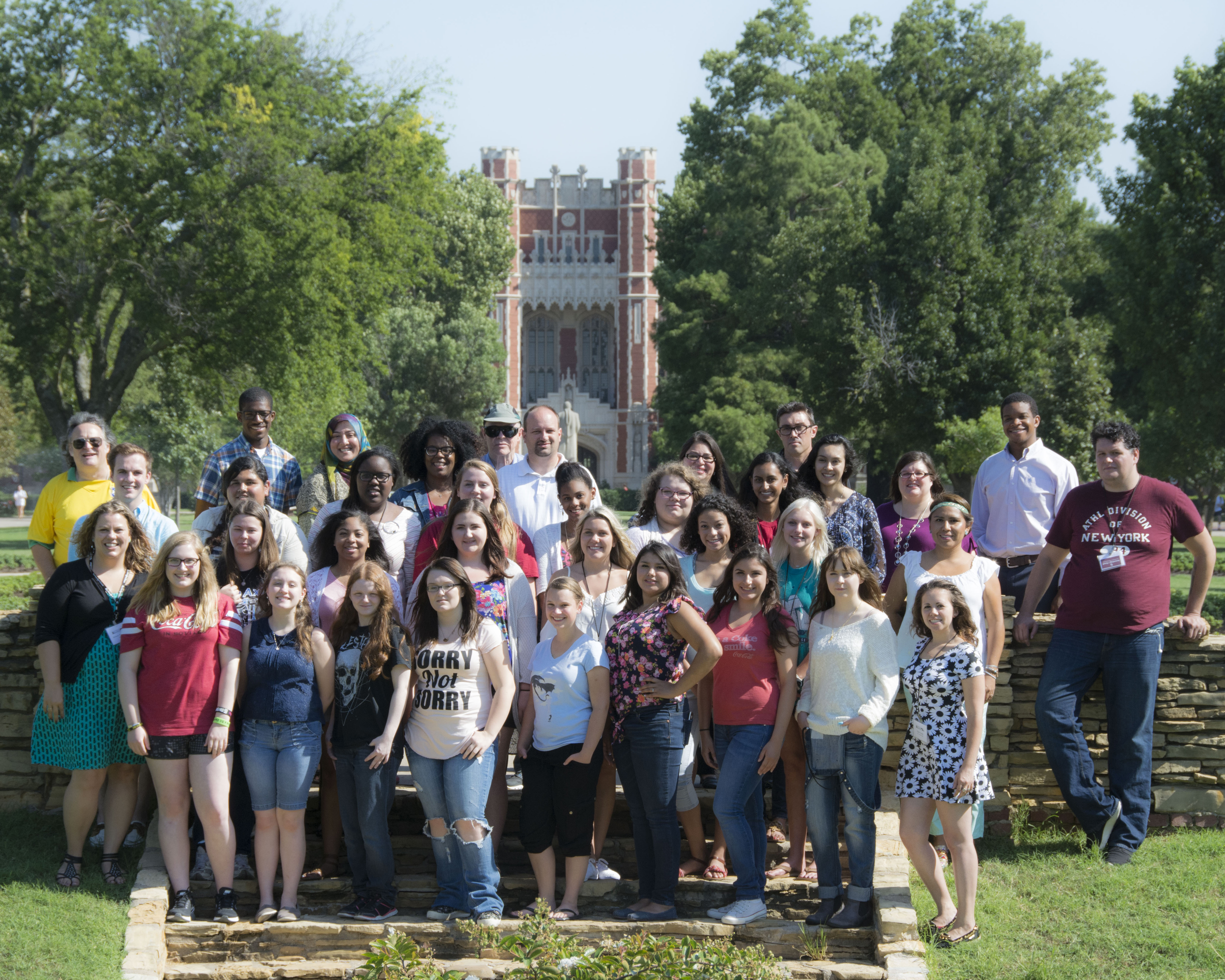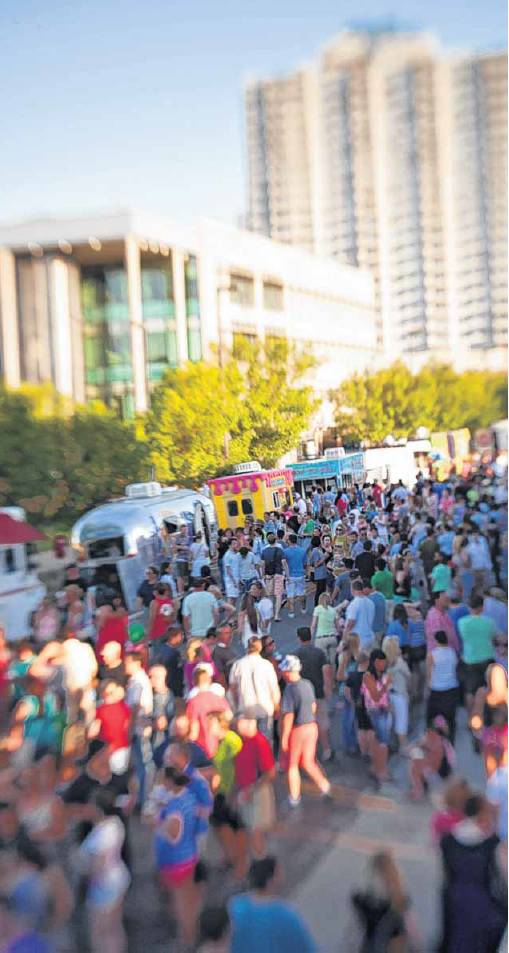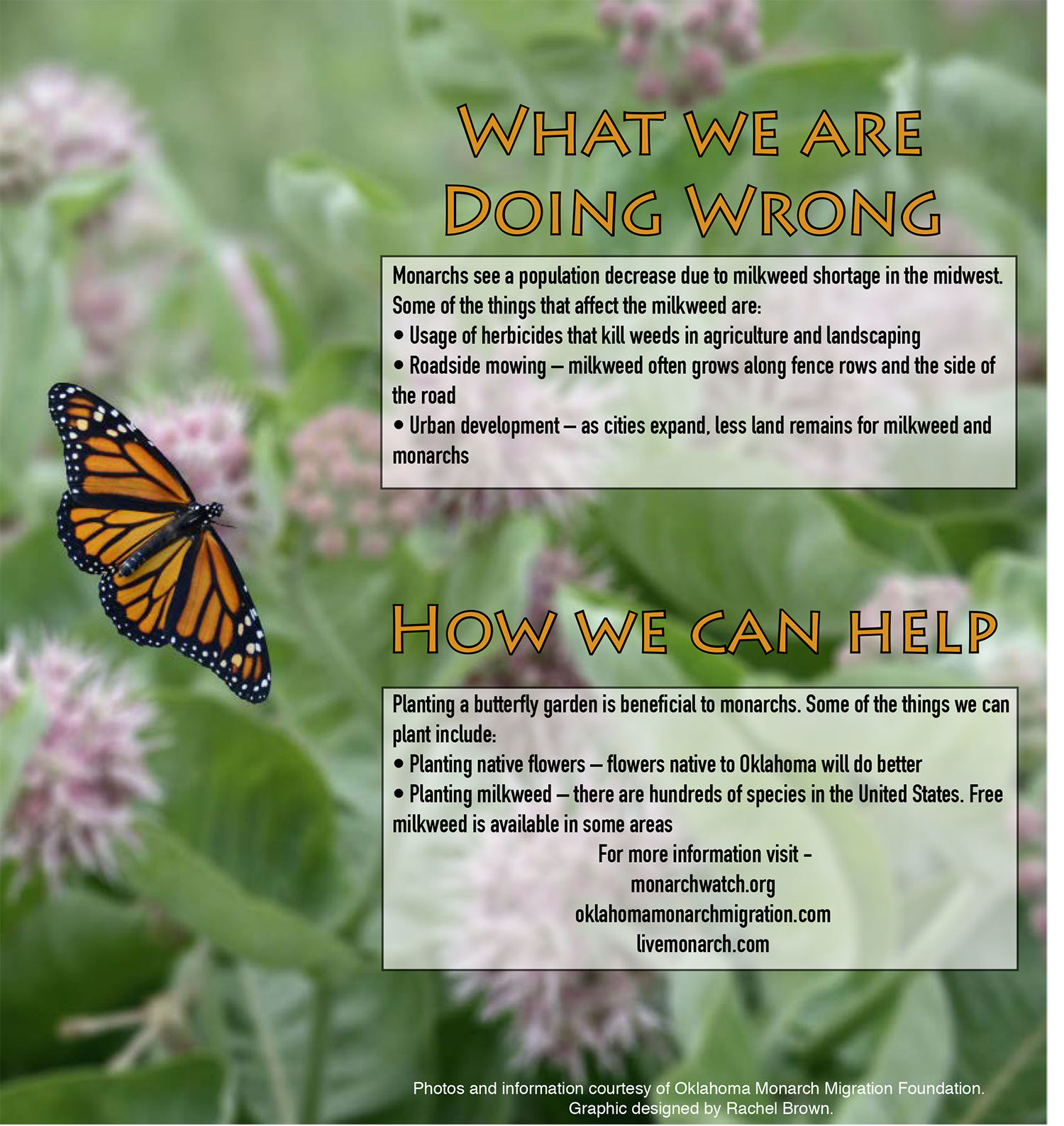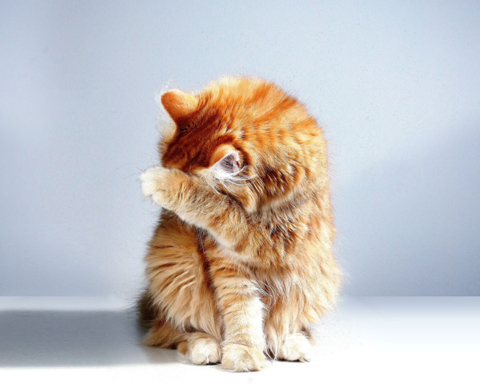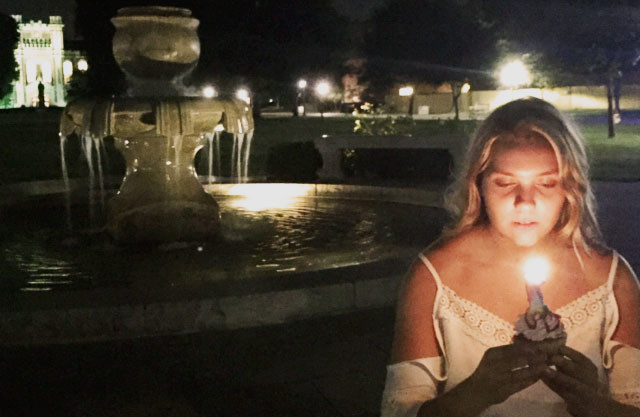Ed Kelley knew his calling at a young age. From working at a small-town newspaper to taking over as the new dean of his alma mater at Gaylord College of Journalism and Mass Communication at the University of Oklahoma, he constantly yearns to meet new people.
Although Kelley first started writing about sports, he also has an interest in politics and history. By age 8, Kelley knew the presidents in order, and his family constantly encouraged him to read about politics.
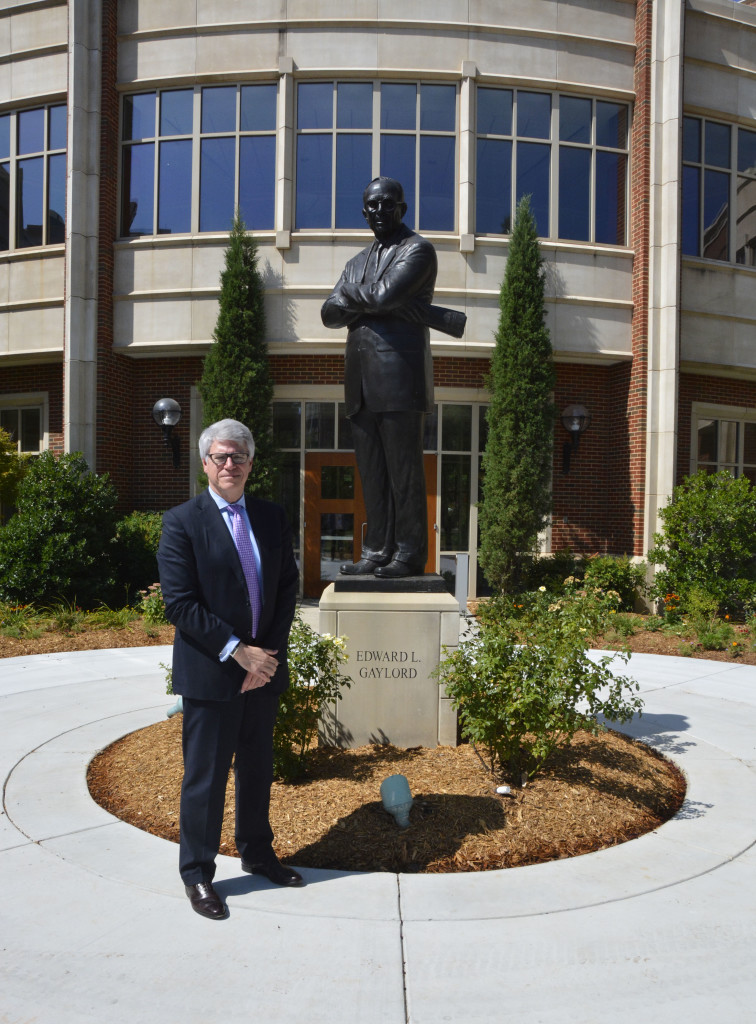
“I really liked history, studying politics; I liked sports too. My parents obviously encouraged me to read and learn as much about all of that as I could,” Kelley said.
Kelley had his “aha” moment late in his middle school years, when he realized he had the capacity to write, and he liked it. He started reading many books, more to study the sentence structure than for the content. He also read three newspapers each day. He soon recognized that journalism might be his profession.
“It felt right. It seemed like a very interesting way to make a living. It fits what my interests were then, and really still is today all these years later,” Kelley said.
As a 15-year-old he was involved with his high school newspaper and frequently worked with the “Perry Daily Journal,” which is still published. One of his best early experiences with the Journal was in-depth work writing about sports.
“That really whetted my appetite for doing what I ended up doing for all my career,” Kelley said.
When he enrolled at the University of Oklahoma (OU), he realized he wanted to focus more writing about on history and politics rather than sports. After Kelley graduated from the OU, he began work at what was then the “Daily Oklahoman.”
Kelley worked at the paper for 36 years, holding a myriad of positions. For a few years he was the Washington Bureau chair, covering news in Washington, D.C., from an Oklahoma perspective. But Kelley said his greatest journalistic accomplishment was covering the 1995 Oklahoma City bombing of the Alfred P. Murrah Building. He won the National Press Foundation Editor of the Year in 1996 for his coverage of the bombing.
Professionally, Kelley has left his mark across the state and the nation.
Michael Shannon, who was the managing editor at the “Daily Oklahoman” while Kelley was the editor, said Kelley could cover any story. He added that Kelley’s experience also allowed him to be a great leader for the paper.
“He is very considerate, and treated others fairly,” Shannon said.
After managing both news and opinion staffs at the “Daily Oklahoman,” from 2003-2011, Kelley began a different journey. In July 2011, he became the editor of a monthly paper, “The Washington Times.” Kelley said his staff covered stories about the White House, Congress, the presidential campaign in 2012, and professional sports.
“I think Washington is the news capital of the world. For someone in the news business like I was for so many years, to me it was an exciting place to be,” Kelley said.
Throughout his professional career, Kelley has maintained a close relationship with the University of Oklahoma, and specifically its College of Mass Communication. He served on the Gaylord College of Journalism and Mass Communication Board of Visitors for 25 years, and said OU has always been a comfortable place for him. His favorite place to study was Copeland Hall, which previously housed the journalism program.
Kelley’s experience has taught him that journalism is journalism wherever it may be.
“While they have different strengths than we do in this country, what they do is every bit as important as what we do here, and in some cases even more important,” Kelley said.
Over the last two years Kelley has shared journalism expertise throughout the country and internationally. He worked on the Myanmar Media Project with American University in Washington, D.C., assisting with Myanmar’s infrastructure in media, attending a media development conference and making connections with top news executives around the country.
He lectured to visiting Latin American journalists in Washington, D.C., with the U.S. Department of State, and shortly thereafter with journalists from Bangladesh.
In San Antonio, he represented the Ethics and Excellence in Journalism Foundation, appearing on a panel with other organizations to create grants for journalism programs in order to help students receive a higher education in the field.
In March 2014, he became a senior contributing editor with Deseret News in Salt Lake City. He worked to develop a business continuity plan and disaster recovery plan for the paper’s parent company, Deseret Management Corp. Kelley helped with special projects in the military workforce, and aiding the fight against inter-generational poverty.
Paul Edwards, the editorial page editor at the Deseret News, said Kelley’s presence helped the staff think through situations and quickly deploy a lot of resources in the newsroom.
“He is an extraordinary resource, with very helpful insights,” Edwards said.
Aside from journalism, Kelley is passionate about children’s organizations and helping young people continue to learn as long as they live. He contributes mostly to disadvantaged students in low-income households, and is particularly passionate about providing education to children during early childhood. Kelley said he wants to ensure higher education is delivered in the most effective way in the 21st century.
In May 2015, Kelley began working full time at his alma mater. He was hired as the director of experiential learning, helping bolster the internship program. Kelley was named interim dean of Gaylord College on July 15. He said he is ready for the best challenge he has come across throughout his career, adding that he wants to provide many new opportunities as the dean.
“Gaylord has a great story to tell. We do a great job of educating our students and teaching how to communicate, regardless of where you are, either in media or somewhere else,” Kelley said.
Kelley said he hopes to maximize resources in all of the five majors offered at the college. He also wants to further develop the potential of the college in Norman and abroad. He desires to make it more convenient for students to constantly perform their skills outside of Gaylord College.
“Being able to communicate, being able to think on your feet and being able to take complex information and make it relatively simple — these are skills that will never go out of style,” Kelley said.
